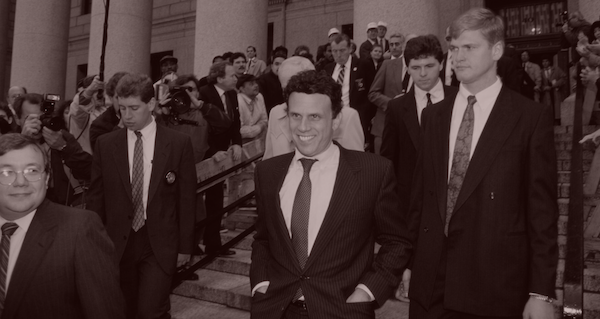|
Good evening.
I'm William D. Cohan, the author of six books and a former M&A banker. Welcome back to Dry Powder, my private email about what's really happening on Wall Street.
If you haven't yet had the chance, you'll need to subscribe to Puck to read my latest column in full. Inner Circle members will also have access to off-the-record conference calls with Puck writers, like myself, in addition to exclusive in-person gatherings (and Puck merch, of course). We're also offering group rates for organizations—simply contact our reservationist, Fritz, to inquire about a package deal.
In the meantime, please enjoy this free preview of Dry Powder, regarding the most pressing questions in the industry and in my inbox. And don't miss our new podcast, The Powers That Be, featuring my analysis of the recession fear stalking Wall Street. SPONSORED BY
Regarding the most pressing questions on Wall Street and in my inbox. Ahern Rentals, an equipment rental company, just pulled its junk bond offering after investors demanded more protections and a 10.5 percent yield. Do you see Ahern as an anomaly, given Wall Street’s ongoing mispricing of risk? Or are investors finally beginning to wake up to softening market conditions by pushing up rates?
To me, this is the best news to hit the junk-bond market in the last year-and-a-half. What it means is that investors are finally getting tough with issuers and insisting that they get both the yield and the protections that they want, or else: no deal. What’s so interesting is that for the first time in months, junk-bond investors are demanding to be fully paid for the risks they are taking.
A yield of 10.5 percent on the failed Ahern bond offering, had it been successful, would have been used by the Las Vegas-based construction-rental company to refinance existing bonds coming due in 2023. Earlier, during the pandemic, the Ahern family took money out of the company in the form of a dividend, irritating some of the company’s existing creditors, especially since the bonds, due 2023, traded as low as 30 cents on the dollar, meaning that the family took money out of the company, causing bondholders to worry about whether they would get repaid. Fortunately, for the bondholders, their bonds have since recovered in price, and now trade nearly at par. These existing bonds carry a coupon of 7.375 percent.
The idea that the company would have to pay more than 300 basis points more for the new bonds in order to pay off the old bonds must have irritated the family, but it is evidence of the dilemma that many companies will begin to face as interest rates continue their upward rise. (Last week alone the average yield on a junk-bond increased to 4.2 percent, from 4 percent.) Companies with less-than-stellar credit, like Ahern, will increasingly find themselves in the distress of not knowing if they can refinance their existing debt, or if they can, how they will react to having to pay investors more and more money to do so.
SPONSOR CONTENT
Ahern’s not alone, of course. In August, Cooke Omega Investments, a fish-based nutrition company, pulled its high-yield offering because of “tepid” investor demand, according to Bloomberg. This is simply fantastic news all around. For years now, investors have badly mispriced the risks they have been taking when buying junk-bonds. Finally, if Ahern and Omega are the start of a trend, the years of borrowers getting away with financial murder will start to come to an end and investors will finally have the upper hand and begin, to once again, get paid for the risks they have been taking...
FOUR STORIES WE'RE TALKING ABOUT The rest of Hollywood is consolidating and bulking up in the face of domination by tech companies. Can CAA play the same game? MATTHEW BELLONI for all the public accolades—and in quintessential Washington fashion—Woodward inspires a surprising amount of eye-rolling in this town, at least in private. JULIA IOFFE Emerson Collective was an early investor in the portentously named digital media company—and among the first to raise red flags. THEODORE SCHLEIFER If you want to understand the conundrum of the financial markets these days, all you have to do is look at the insanity in junk bonds. WILLIAM D. COHAN
|
-
Join Puck
Directly Supporting Authors
A new economic model in which writers are also partners in the business.
Personalized Subscriptions
Customize your settings to receive the newsletters you want from the authors you follow.
Stay in the Know
Connect directly with Puck talent through email and exclusive events.














